When three B-school friends left lucrative careers to support Indian artisans
India Kala supports 400 artisans across 40 Indian art and craft forms and helps them reach a wider audience across the country and around the world.
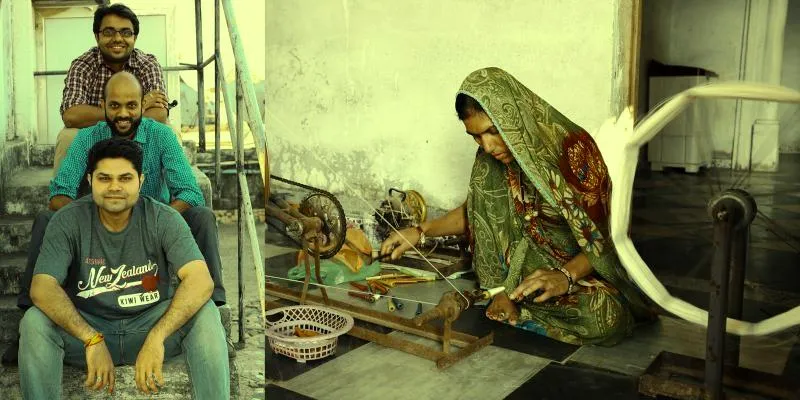
It is a known fact that India is a land of artisans. But many of them, especially those in the hinterlands, languish in oblivion, without any market or recognition for their work. India Kala,an online store,endeavours to bring unique handmade products directly from workshops of rural Indian artisans to the doorsteps of customers in India and around the world.
“We not only source but also co-create unique handmade products with our artisans. We want to make Indian handmade products desirable and easily accessible to customers without diluting the heritage of our crafts and improving income levels of artisans,” says Jaimini Purohit, Co-founder of India Kala.
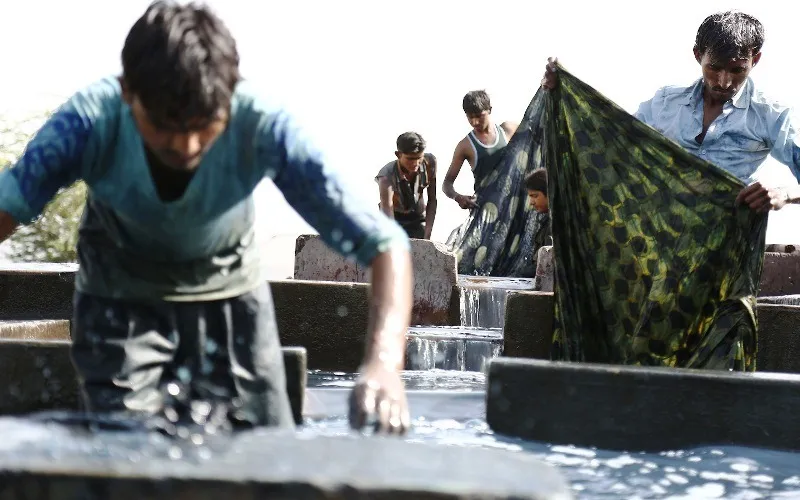
India Kala was started by Ankit Dhanuka (31), Sunny Shah (31) and Jaimini Purohit (32). The triowere in B-school together and worked in MNCs before they quit and started their entrepreneurial journey in the world of crafts.
As Jaimini remembers, “During a chance meeting in 2015, three years after leaving B-school, we were sitting at a coffee shop and one of us got talking about Ooty chocolates and how delicious they were but hard to find in Mumbai. A little research then and there led us to understand the concept of Geographical Indication tags—Ooty chocolates have a GI tag which means they can only be made in Ooty. Going through the list,close to 208 items then, we saw an opportunity to bring quality handmade products from across the country to the homes of people. However, it wasn’t until we travelled to Dahanu to visit Warli artisans that we really felt a connect towards the artisans and the world of crafts, and decided that there was both a social and economic opportunity here, a win-win.”
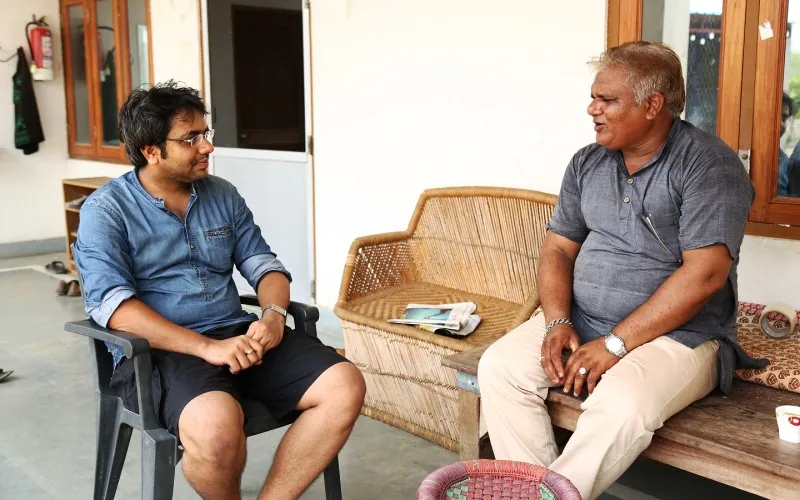
Having spent close to two years on the road, India Kala visited artisans across eight states. After understanding the challenges and complexities faced by the artisans and customers alike, India Kala visualised a gap between what the customer perceived and the artisan delivered, both hindered due to a lack of communication. The founders set themselves the task of bridging this gap.
“We began operations in May 2016 with our first artisan, Madhukar Wadu, who is a Warli painting artisan, and since then our artisan family has increased to 400 and we work with close to 40 Indian craft forms,” shares Jaimini.
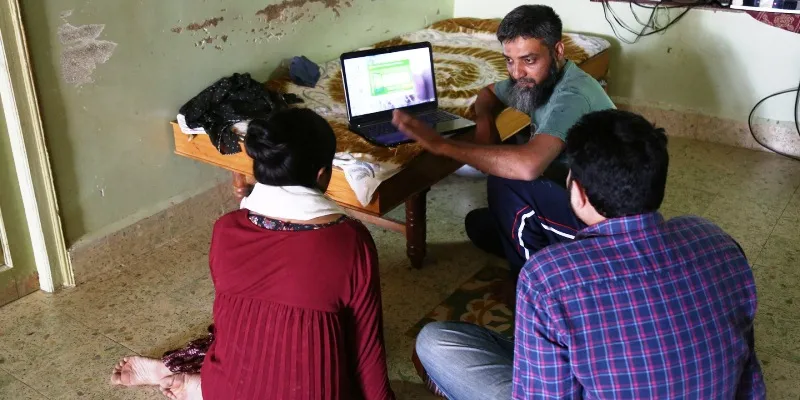
Although India Kala is an online store that connects online shoppers to authentic handmade products, to give orders with large volume to the artisans they also help the artisans in building a robust offline presence.
“We regularly work with corporates and brick-and-mortar handicraft stores, and orders from these avenues help provide more work to more artisans,” says Jaimini. The organisation also tries to work with artisans who possess certain niche skill sets, likeembroidery, leather crafts etc., and provide them with suitable opportunities.
Jaimini shares a success story when they were working with a customer who had liked their product so much that they tripled their order quantities. For the founders it was a bittersweet moment. As a startup, says Jaimini, it is always encouraging when someone trusts you. However, they were also mindful of the fact that delivering such a large quantity would be challenging if not impossible. So, the very next day they got on a train to visit the artisans and explained the opportunity and the problem. An artisan came to their rescue and took them to three villages in his vicinity to speak with other artisans and see if they all together could fulfil the order. None of them could commit. That’s when the artisan contacted another artisan in another state who had the required skills to create the product, the other artisan agreed, and before they knew it they had close to 300 women artisans working on their order. They were able to deliver as per the schedule.
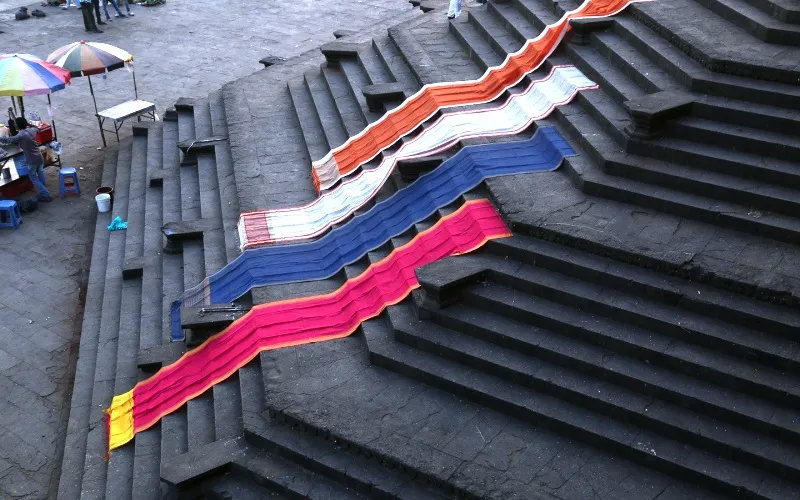
Apart from the business aspect, India Kala has also developed a deep personal rapport with the artisans be it sharing the joys of the birth of their children or taking their opinion in certain matters.
Jaimini further adds, “At India Kala, we work with various art forms, some of which are on the brink of dying. At present we work with Tangaliya—a form of beaded embroidery practised by artisans of Kutch—artisans, Sawantwadi—a town on the Goa and Karnataka border famous for their handmade wooden toys—toys, Dokra—an art form from Chhattisgarh—art, Pattachitra—form of painting unique to Orissa, with primary subject being mythology—paintings,and Suf—meaning triangle in Kutchi and practised by young women as the free-hand work requires keen eyesight—embroidery.”
They have collaborated with these artisans to help them adopt a model or try and assist them according to their need. “Tangaliya artisans, for example, struggle with reaching a wider market due to the limited awareness of the craft, so we make it a point to create small educational tags for their products and buy as much as we can directly from the artisan,” shares Jaimini.
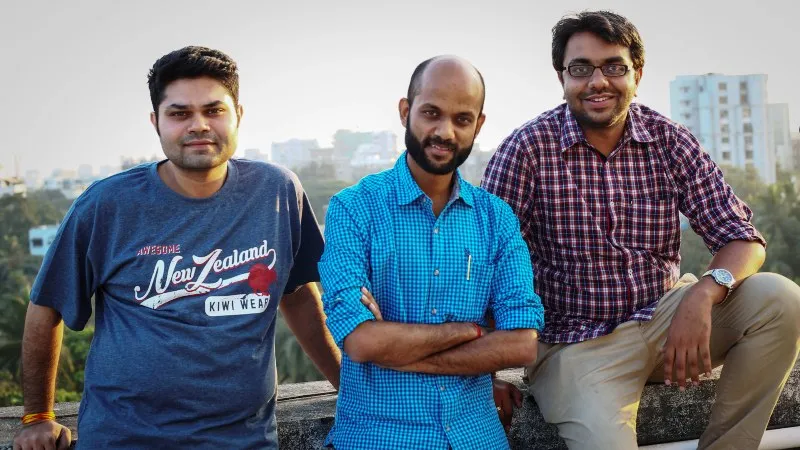
Apart from providing opportunities for more work, the organisation also focusses a lot on quality and gets the products tested at government-recognised testing labs regularly, which also helps the artisans understand what standards are acceptable in the market.
India Kala’s growth story is phenomenal. Its revenue has crossed INR 50 lakhs in its first year of operations. As for the visitors to the website has seen 100% increase in proportion of organic visitors. There’s an average of 25 to 27k visitors in a month. It also boasts of close to 1000 online orders in it’s first year.
Jaimini further adds, “17 billion USD is the global Indian Handmade market of which we are right now targeting 6.8 bn USD. Also, our target to increase our online presence and cover 80 Art forms from across India and tie up with more than 1500 artisans in that time span.”
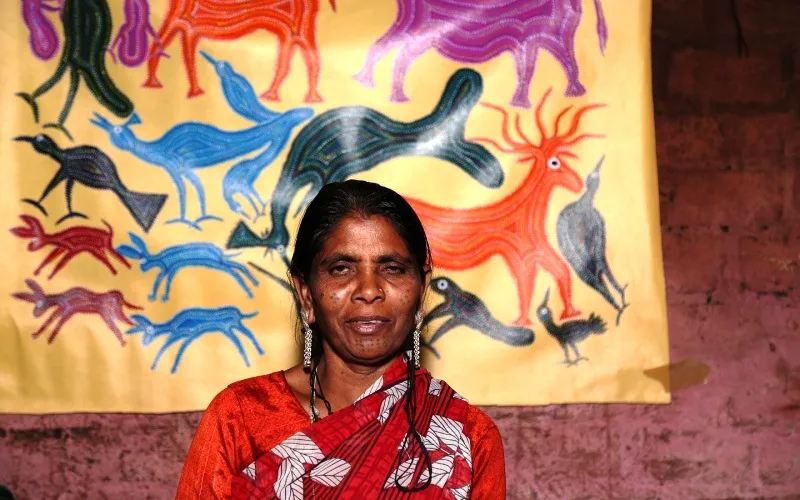
As for the future plans, India Kala is also building a virtual library of craft forms by collecting antique textiles and other products that they hope will help create awareness among present and future generations.







